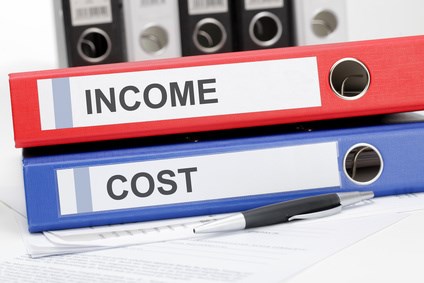If you are making an income on your own by selling a product or a service and you have not registered as a limited company you are a sole trader. A sole trader runs their own business and is therefore self-employed and, as a self-employed person, there are certain accounts records you need to keep so that you can report your income, expenses and profit to HMRC annually on your tax return.
If you are a partner in a business you are also considered to be self-employed so will need to ensure the partnership keeps the relevant accounting records so you can report your share of the income, expenses and profit from the partnership return on to your own self-assessment tax return.
What records do you need to keep as a sole trader or partner?
- Details of all your sales and all your income. Not all income is trading income - any investment you make into the business or loan you receive from a third party is not taxable income. Grants such as SEISS and Furlough Claims if you are an employer are taxable income and must be included on your tax return.
- Details of all expenses related to selling your product or service and running your business. This would include materials, advertising, insurances, telephone charges, stationery, etc. It also includes wages if you have staff but not your own wages.
- Copies of VAT returns and the VAT you have paid and VAT you have reclaimed if you are VAT registered. VAT returns must be supported by the transactions making up the total of each box on your VAT return.
- Records of wages and deductions if you are an employer.
Your tax return
When you prepare your tax return you will have to enter your total income for the year and your total expenses. The profit you have made during the year will be taxable. If you have kept your accounting records up to date and organised during the year these records will enable you to easily calculate these two figures.
HMRC may inspect your records
If HMRC wants to check the figures you have submitted on your tax return they will ask for proof of your income and expenses. It is important, therefore, that alongside your accounts records you keep copies of:
- your sales invoices, till rolls or other method of receiving income
- invoices or receipts supporting all your purchases
- bank statements (if all your transactions are through a business bank account you will not have to give them access to your personal one as well)
These documents can be kept in paper or electronic format but must be easily accessible when required.
If you are VAT registered HMRC will check that the transactions you have recorded on your VAT returns have supporting receipts from VAT registered businesses which show the VAT number.
Traditional or cash accounting?
Most businesses, when they are starting out, will record income and expenses on the date they occur. This is known as cash accounting.
As a business grows and there are customers who haven't paid at the end of the financial year or suppliers who haven't been paid because 30 day payment terms have been agreed, it is more straightforward to maintain accounts in the traditional accrual method. You would be using accounts software at this stage and be easily able to record sales and purchase invoices with the date on the invoice and show the payment against this invoice when it is made. It is more straightforward at the end of the year to report your income based on what you have invoiced and what you have bought rather than what you have been paid for and what you have paid.
How long do records have to be kept for?
Accounts records must be kept for at least 5 years after the submission deadline for the tax year. For example if you are submitting a tax return for 2020-21 which is due by 31st January 2022 you must retain the records for that year until at least 1 February 2027.

